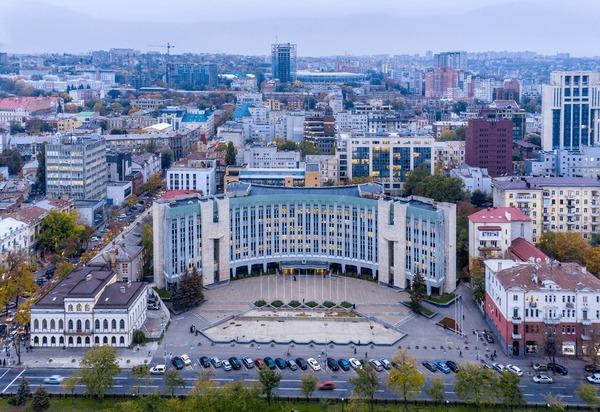Ukraine has officially confirmed that Russian forces have entered a strategically significant area within the Dnipropetrovsk region, marking a notable escalation in the ongoing conflict between the two nations. The admission, reported by the BBC, underscores the intensifying military pressures faced by Ukraine as the war continues to unfold across multiple fronts. This development signals a critical shift in the territorial dynamics of the conflict and raises concerns about the broader implications for regional security.
Ukraine Confirms Russian Forces Advance into Strategic Dnipropetrovsk Region
Ukrainian officials have acknowledged that Russian military units have made significant incursions into the Dnipropetrovsk region, marking one of the most alarming developments in the ongoing conflict. This strategic area, known for its industrial capacity and critical infrastructure, plays a vital role in Ukraine’s defense and logistics network. Ukrainian forces are reportedly engaging in intense countermeasures to halt the Russian advance, with local authorities urging civilians to remain vigilant and prepare for potential disruptions.
The situation remains fluid, with key points of interest now under heightened security. The region’s importance is underscored by its:
- Heavy industrial zones contributing to Ukraine’s defense manufacturing
- Vital transport links connecting eastern and western parts of the country
- Proximity to contested frontline areas increasing tactical significance
| Region | Key Assets | Current Status |
|---|---|---|
| Dnipropetrovsk | Industrial plants, Rail junctions | Under Russian pressure |
| Zaporizhzhia | Power plants, Military bases | Reinforced Ukrainian defense |
| Kharkiv | Urban centers, Supply routes | Ongoing clashes |
Implications for Regional Security and Civilian Safety Amid Escalating Conflict
The recent incursion into the strategic Dnipropetrovsk region marks a significant escalation in the ongoing conflict, raising urgent concerns over the stability of neighboring territories. Regional security frameworks are now under immense pressure as military movements threaten to destabilize key transport corridors and critical infrastructure. Governments in adjacent areas are ramping up their defense postures, with increased patrols and intelligence sharing becoming paramount to prevent further spillover effects. Analysts warn that the encroachment could trigger a domino effect, potentially drawing in external actors and complicating diplomatic efforts already strained by months of hostility.
Beyond military implications, the humanitarian situation continues to deteriorate rapidly. Civilians face heightened risks from artillery exchanges and restricted access to essential services. Evacuation orders and emergency response plans have been activated in several districts, yet challenges persist in coordinating safe corridors amid volatile frontlines. Key concerns include:
- Displacement – Thousands are being forced to relocate under harsh winter conditions, exacerbating shelter shortages.
- Healthcare – Hospitals are overwhelmed, with limited supplies reaching conflict zones.
- Communication – Disrupted communication networks hinder both emergency coordination and civilian connectivity.
| Security Challenge | Current Status | Potential Impact |
|---|---|---|
| Border Surveillance | Increased | Reduced infiltration risks |
| Civilian Evacuations | Ongoing | High logistical complexity |
| Humanitarian Aid Access | Restricted | Rising civilian casualties |
Calls for Enhanced International Support and Immediate Humanitarian Assistance
Amid growing concerns over the recent advancements by Russian forces, international voices are amplifying demands for expanded aid and urgent humanitarian relief in the affected regions. The situation’s rapid escalation has overwhelmed local infrastructure, leaving thousands displaced and in dire need of basic necessities such as food, water, and medical supplies. Observers stress that without swift and coordinated global intervention, the humanitarian crisis risks deepening dramatically.
Key areas demanding immediate action include:
- Provision of emergency medical teams and mobile health units
- Establishment of safe corridors for civilian evacuation
- Deployment of food and clean water distribution networks
- Financial support to local NGOs addressing crisis response
| Type of Assistance | Urgency Level | Potential Impact |
|---|---|---|
| Medical Support | High | Reduce mortality, treat injuries |
| Food & Water Supply | Critical | Prevent malnutrition, dehydration |
| Evacuation Facilitation | High | Protect civilians, reduce casualties |
| Financial Aid | Medium | Sustain relief operations |
To Wrap It Up
As the situation in Dnipropetrovsk continues to develop, the admission by Ukrainian officials marks a significant shift in the conflict’s dynamics. The entry of Russian forces into this key region raises concerns over the stability of southeastern Ukraine and underscores the ongoing volatility along the front lines. International observers and stakeholders will be closely monitoring the unfolding events, as the implications for regional security and diplomatic efforts remain uncertain. Further updates are expected as both sides respond to this critical development.



